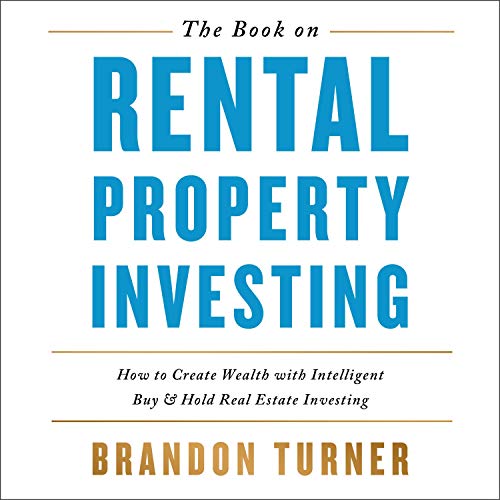If you like the thought of investing in Real Estate Investment Trusts, you should also be considering Real estate Exchange Traded Funds.
Overview
- Up-Front Investment: Can be as low as $500. Smaller investors can buy assets commercial, industrial, and retail real estate without a lot of cash.
- On-Going Investment: None, unless you choose to continue adding more money to your portfolio.
- Return on investment: Sell when you want at the current exchange price. You will earn a % dividend paid monthly or quarterly
- Best for: Anyone looking for a passive and flexible investment strategy.
What are Real Estate Exchange Traded Funds?
A real estate exchange-traded fund (ETF) is an exchange-traded fund that invests the majority of its assets into equity REIT securities.
Real estate ETFs are known for having above-average dividend yields. These ETFs share traits of both fixed income securities and equities. Due to the high dividend yields, you can use an ETF to provide consistent income.
Do your research before buying into one because many different indexes exist and they can have a variety of different focuses, from commercial mortgages to high-risk mortgages.
Whats the difference between ETF and REITs?
If you are trying to decide between buying into REITs directly or choosing a Real Estate ETF, here’s the difference:
Real Estate Exchange Trade Funds are a lower-cost way to get exposed to the potential value of REITs. A Real Estate ETF owns several REITs and will be designed to mirror an underlying index (like those mentioned above). You can invest in an international REIT ETF or a domestic one.
What are the best Funds to buy?
Two popular benchmarks used for ETFs are the Dow Jones U.S. REIT Index and the MSCI U.S. REIT Index (both of which cover around ⅔ the aggregate value of the public REIT market).
According to EFT, these are the top Real Estate Exchange Traded Funds in 2021: Vanguard Real Estate ETF (VNQ) Schwab US REIT ETF (SCHH) iShares U.S. Real Estate ETF (IYR) Real Estate Select Sector SPDR Fund (XLRE) iShares Cohen & Steers REIT ETF (ICF)
Vanguard Real Estate ETF (VNQ) is one of the most popular funds on the market today. It Invests in stocks issued by real estate investment trusts (REITs) companies that purchase office buildings, hotels, and other real property.
VNQ pays a annual dividend of $3.18 per share and you’ll get a average return of 4.07% (2021). See this article for VNQ dividend history.
More: Buy Vanguard Real Estate Exchanged Traded Fund for free at M1 Finance

The Pros
Investing in REIT ETFs is a proven investment strategy. In fact, more than 80 million Americans already own shares in one through their retirement or savings plan. They are a wonderful, low-cost way to get into the profitable real estate market.
Like REITs, you can begin profiting from real estate through a Real Estate ETFs without the need to purchase/own your own property. This lowers your risk by lowering your up-front and (optional) on-going investment.
You can invest as much as you are comfortable with and hold on to it for as long as you like. If you need to get your money out quickly, you can sell it on the stock market for the current share price.
Holding on to your Real Estate ETF will allow your investment to continue to grow through the years and, meanwhile, you’ll be enjoying dividends.
The rate will vary based on your REIT ETF and its success, but if you put in $1,000 and saw a 5% return the first year, that means you would earn $50 for the year.
Nothing that will get you rich, but keep in mind that $1,000 is still there to keep growing in value the longer you leave it on the market.
More: Learn How to Create an Empire on Airbnb without Owning a Home
For instance, if you buy in at $1,000/share but the price doubles in the next decade, you essentially have $2,000 (if you choose to sell) along with the dividends you’ve earned in the meantime. REIT ETFs are a great way to stow away your money while earning higher rates compared to any typical savings account, if you trust the market will stay strong.
The Cons
The biggest con with Real Estate ETF is shared with all types of investments: you may not get out what you put in. If you choose to sell your ETF at any point, you’ll be selling it at the current market price. That may be really high, which is great, or really low, which wouldn’t be so great.
Summary
Real Estate Exchange Traded Funds can be a strong asset to add to your investment portfolio. They provide access to several different real estate investment properties such as industrial and commercial that could be difficult for small investors to gain access to.
When buying these funds, I recommend investing in stocks for several years for the best returns. You should expect to leave your money in for the longer term (think 5+ years).
You can, of course, sell your shares at any point, at the risk of taking a loss. Buying and selling in the short-term probably won’t prove profitable, so plan on holding onto your shares for a long time while you enjoy the higher-than-average dividends in the meantime.
More: Invest in Top Rated Real Estate Exchanged Traded Funds for free at M1 Finance



